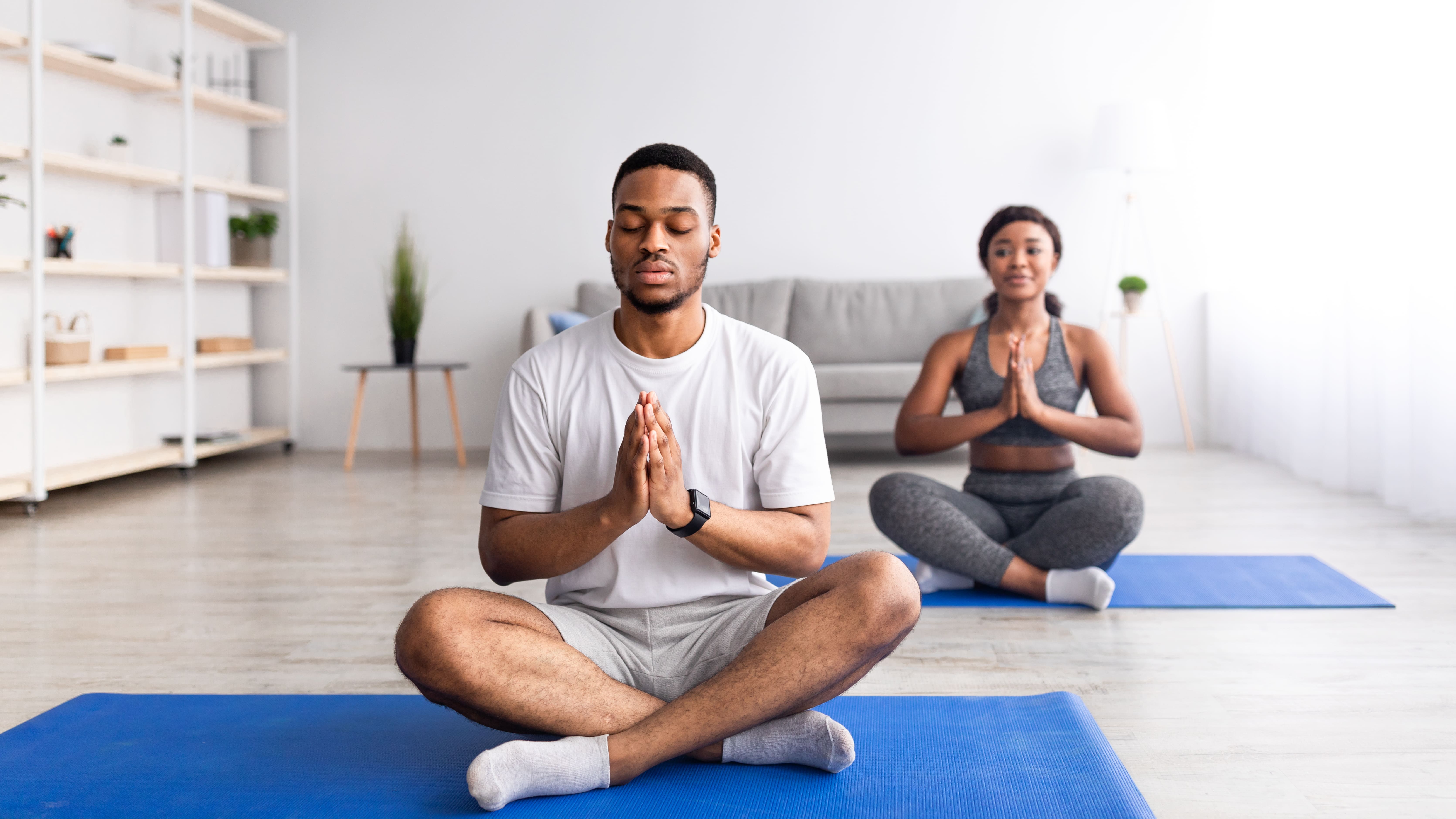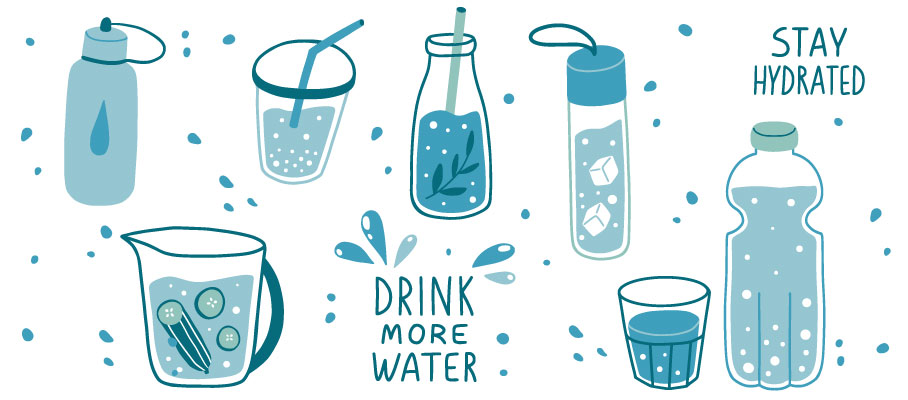Latest Blogs
Monsoon Diet: What You Should Eat And Avoid
Monsoon diet tips The monsoon brings relief from the heat, invigorates the beauty of nature, and sprouts hunger for munching on hot, delicious, nonetheless fatty foods. It also changes the climatic temperature and humidity, impacting the immune system. Monsoons account for some of the highest cases of common water-borne diseases such as cholera, malaria, and typhoid. The combination of heat and humidity can also weaken the skin barrier, making it prone to damage and infections. Further, these may affect the immune system and your ability to enjoy monsoon to the fullest. Hence, it is vital to maintain health in order to make the best of this season. Healthy foods to eat in the rainy season The body is what the body eats. Therefore, the body must be full of nourishment and immunity-promoting foods to maintain health with an optimally functioning immune system. So, it is just as important to include healthy foods in your monsoon diet plan to eat during the rainy season. The summer's extreme heat is when the body experiences excessive heat that the monsoon relieves. Internal body heat makes the body's digestive system sluggish, consequently affecting immunity. Therefore, an essential monsoon diet tip is to avoid foods that aggravate body heat and indulge in light, calming foods. Here is a list of healthy foods to eat in the rainy season and foods to avoid. Eat: Light, protein-rich meals Human bodies thrive on balanced nutrition that comprises an optimal balance of all food types. Proteins are complex foods that are slow to digest. You might think this could burden the digestive system, which is already sluggish. However, proteins make it to this list of healthy foods to eat in the rainy season because the already slow digestion of proteins keeps you fuller, sustaining you longer, instantly combating your cravings for unhealthy foods commonly longed for during the monsoons. Most food cravings originate when food gets digested quickly, and you need a quick fix. These quick meal fixes are easy to find in unhealthy but quick to make and eat snacks. Therefore, it is important to have light, protein-rich meals as part of your monsoon diet plan, which will help you eat well and avoid unnecessary cravings. Avoid: Heavy Foods A staple of monsoons is the craving for deep-fried foods prepared at home or available at street-food stalls. Avoid temptation; deep-fried heavy foods can be spicy and acidic and aggravate a sensitive digestive system. They may also lead to water retention, acidity, and indigestion. Therefore, the ultimate monsoon diet tip is to forego heavy foods in favour of a diet containing healthy foods to eat in the rainy season. Eat: Immunity-boosting foods No monsoon diet plan is complete without including immunity-boosting foods. These include ingredients like turmeric, ginger, black pepper, or honey that are integrated into homemade healthy foods to eat in the rainy season. You can also consider external supplements like ashwagandha, Triphala, Giloy, or Brahmi to boost your immunity. Another helpful monsoon diet tip is to include spices in your monsoon diet plans. Ensure you consume micro-quantities of anti-inflammatory spices like turmeric, cinnamon, black pepper, ginger, saunf, or coriander. Avoid heat-generating spices like chilli powder, garlic, onion, and green chillies. Cold, cough, and the flu are common during the monsoon; hence, changes to monsoon diet plans must include adequate tulsi, mulethi, and other similar ayurvedic ingredients to help your body's immune system resist colds and coughs. Avoid: Raw, uncooked food The monsoon-induced digestive system sluggishness can also affect the ability to digest and process raw foods efficiently. Not just that, while green leafy vegetables are full of antioxidants and vitamins, they may not be examples of healthy foods to eat in the rainy season and also know about monsoon test For example, a good monsoon diet tip would be to avoid vegetables like cauliflower, lettuce, spinach, broccoli, spring onions, and cabbage in your monsoon diet plans. Avoid these mainly due to the fact that they are high in water content and a risky source of infections during monsoons. If it is necessary for you to consume them, do ensure that you cook them for at least 30 minutes to make sure that all possible contaminants do not survive. Other raw, uncooked foods to avoid during monsoons include any forms of seafood and meat, as they may not only be potential carriers of infection but also burden your digestive system due to their complexity. Eat: Gut health-promoting foods Having good gut health does wonders for your immunity. It boosts your immune system and fosters good bacteria growth, which prevents infection by inhibiting harmful bacteria from taking over. Therefore, a list of healthy foods to eat in the rainy season is incomplete without gut-friendly foods like cucumbers, beets, beans, and more. Good gut health is encouraged by foods that reduce inflammation - including bitter gourds, bottle gourds, and tomatoes. A monsoon diet plan rich in these vegetables can supplement you with essential vitamins like vitamin A, B6, B12, C, and K; and minerals like zinc, potassium, iron, and manganese. These diet inclusions ensure a healthy monsoon diet plan that is also a nutritional powerhouse for you. Many things influence the human body, the climate being one of them. Eating meals suited to the outside temperature and environment can help facilitate a healthy immune system and mental state. It helps fight off physical diseases and improves mental well-being by aligning the body's energies. That is why it is necessary to have a deliberate monsoon diet plan full of healthy foods to eat during the rainy season. Conclusion The ultimate monsoon diet tip, perhaps, is to consume healthy food that makes you feel good while enjoying the beauty of the monsoons. However, despite practising all the possible dietary measures, it is still possible to contract water-borne diseases during the monsoon, especially the common cold or flu. While many reflect localised cold and cough infections, some might prevail as prolonged fever bouts -- usually an indication to get checked for a possible infection. If you experience persistent fever, get a comprehensive fever panel by multiplex PCR from Metropolis today!
How to Prevent Mosquito Bites: 15 Strategies for Effective Mosquito Prevention
Introduction It is a misconception that mosquitoes thrive only in tropical, warm environments. They can also survive in temperate and colder regions during summer and spring. It is challenging to avoid mosquito bites. Here are some 15 tips to prevent mosquito bites while sleeping. Mosquito bites are frequent during the warm monsoon season, they also make their presence felt during winter. Mosquito bites cause red, itchy bumps on the skin and can even cause life-threatening diseases like dengue, malaria, chikungunya and zika. Therefore, knowing how to prevent mosquito bites effectively is vital. 1. Steer Clear of Mosquito Habitats Mosquitoes require still, stagnant water to lay their eggs. Young mosquitoes can hatch and grow in anything that holds even a small amount of water. Therefore, clearing stagnant water and trash is necessary, especially during monsoon season. Remove old tyres as they are considered prime mosquito nurseries. Drill holes in them to let water drain out. Do not pile up on cups, cans, empty bottles and other forms of trash. Discard trash responsibly. Empty children’s buckets and pools after use. Eliminate still water in plastic covers, gutters, toys and other containers that are great mosquito havens. Change and empty water in fountains, bird baths, rain barrels, wading pools and potted plant trays at least once during the week, thus destroying potential mosquito breeding grounds. Fill temporary water pools with dirt. Treat and circulate water in swimming pools. 2. Dress Wisely Deep-coloured clothing, like deep blue, red and black, stands out and attracts bugs. Therefore, wear light-coloured clothes, especially when you head outdoors. When mosquitoes are overly active in the evening, wear full-sleeve shirts, socks and long, preferably loose pants. Always tuck the pants under the socks or shoes so that no surface area on the body remains open. 3. Opt for Woven Clothing Breathable fabrics with tight weaves, like nylon, cotton, and denim, are difficult for mosquitoes to penetrate. On the other hand, they can easily bite through lighter and thinner fabrics like spandex. So, always choose tightly woven fabrics. Also, choose clothes pretreated with the insecticide permethrin if you reside in a mosquito-prone region. Mosquitoes that land on this kind of clothing fly off and eventually die. 4. Use Mosquito Repellents You can use different mosquito repellent lotions, sprays and creams that effectively ward off mosquitoes. These are infused with chemicals and herbal oils that keep mosquitoes at bay with their fragrance. However, choosing the right repellent is very important here. AAP or the American Academy of Paediatrics recommends DEET repellents that protect against West Nile virus, Zika virus and Lyme disease. Other effective mosquito repellents contain PMD, IR3535 insecticide or picaridin, which are considered safe when used as instructed. Check for skin irritations when choosing mosquito repellents, especially for children and pregnant women. Avoid spraying the content around the mouth and eyes. Use them on the feet, ankles, wrists and lower legs- these are the thin-skinned areas of the body where mosquitoes usually bite. 5. Use Mosquito Nets How do we prevent mosquito bites while sleeping? By using mosquito nets! They are specifically useful in humid and warm places throughout the year and create a physical barrier that protects from mosquito bites while sleeping. Well-fitted screens on windows and doors are also good to keep mosquitoes away from entering your home or other premises. But then you must ensure they are repaired from time to time. Check for holes large enough for insects to come through. Patch up all such holes on your window or door screen. 6. Safeguard the Backyard Use a mosquito lantern with a permethrin release function in your backyard, especially if it is semi-enclosed or features a pool with two to three walls. Do not choose torches, lanterns and citronella candles, as even the slightest breeze can blow away the active ingredients in these products. You can depend on wind power to ward off mosquitoes from open areas surrounding your premises. Another option is to set up a big box fan in the yard. Once the air speed of the fan reaches more than 1 mile per hour, mosquitoes will find it challenging to fly. Also, fill up your home and garden with mosquito-repellent plants like citronella, feverfew and lavender. 7. Always Have Mosquito Dunks Handy Mosquito dunks are small, doughnut-shaped tablets that release bacteria known to kill mosquito larvae. The bacteria do not harm plants, animals and humans and are thus the perfect solution for homeowners who want to know how to prevent mosquito bites. These small dunks are also effective in potentially infected regions like rain barrels, fish ponds and bird baths. Therefore, you must always have them handy. 8. Stay Indoors During Dawn and Dusk Culex and Anopheles mosquitoes that cause dangerous infections are most prevalent during dusk and dawn, primarily dusk. Therefore, you must avoid the outdoors as much as possible during these times of the day. 9. Keep the Surrounding Landscape Clean Well-trimmed shrubs and trees improve the air circulation of a property. Increased airflow pushes the mosquitoes out of the area. 10. Use Bug Zappers Bug zappers or mosquito traps use UV light and carbon dioxide to attract and kill mosquitoes. Mosquitoes are attracted to the blue glow of these traps. Just one of these electronic mosquito killers from a good brand offers half an acre of coverage. 11. Burn Neem Leaves and Repellent Oils Looking for a budget-friendly way to prevent mosquito bites? Get some neem leaves from the backyard and burn them safely at the entrance of your house or other mosquito-prone areas. This effectively purifies the surroundings as mosquitoes cannot bear the smell of burning neem leaves. You can also use affordable repellent coils that burn for seven hours and release a smoke-containing pyrethroid. This serves as a spatial repellent for mosquitoes and even other insects. 12. Say No to Scented Products Research has proved that scented products, like lotions, shampoos, soaps, aromatic oils or perfumes, attract mosquitoes more. Thus, try to use such products less, or opt for products with a very light scent or no scent. 13. Use Yellow Lights in the Outdoors Replace outdoor illuminators with bright, yellow lights. These do not repel mosquitoes but usually attract fewer of them. 14. Limit Your Movement Activity and movement make you more apparent to the mosquitoes. When these bugs get closer to land, they sense body heat, indicating where blood is the closest to the surface. Hence, they know where to feed. More activity and movement will raise your skin temperature, thus making you stand out easily. 15. Avoid Alcohol Studies show that consuming alcohol also makes people attractive to mosquitoes. This is because alcohol increases the blood flow to the skin and the metabolic rate. The latter boosts CO2 production, which helps the mosquitoes find their food sources faster and make you the centre of their attacks. Conclusion Mosquito bites do not cause any harm and resolve themselves after a few hours. Nevertheless, they can be annoying, itchy and sore in their appearance. Follow the tips above to eliminate those red, swollen bumps on your skin faster and more effectively.
How do you Maintain Mental Health in the Workplace?
Post the pandemic, slowly and steadily life is returning back to normal with the daily morning hustles, travel to work, the formal attire, work life discipline etc. The lockdown was a period of rapid adjustment, balancing home and office life, with hectic meeting schedules, late working hours, taking care of the household chores etc. Understandably, after nearly 2 years of work from home, returning to the workplace is not an easy change and getting back to the previous routine is certainly not an overnight task. Now that offices are opening and employers want their staff to return, it is once again a period of stress and anxiety for the employees who have got so used to the informal working environment. This time returning to the offices and carrying on usual business would not be as simple and quick as just another announcement of reopening or return. Creating a workplace environment that cares about the mental wellness of the employees has become increasingly important now more than ever. The back to back meetings with busy schedules can adversely make the employees feel tired, exhausted and stressed, thereby affecting their productivity levels and leaving a dent on their mental wellbeing. While mental well being is important, physical well being also cannot be shunned and therefore it is vital to get a preventive full body health checkup done on a routine basis. Going for a series of medical full body tests to ensure the body is fit and healthy, can be another boost to join the office and work afresh. You can book and get your full body health checkup at a reasonable cost done here. Here are some basic tips that can help you power your mental health and ensure your mental well-being at the workplace. 1. Identify the cause of your anxiety: is it the socialising that you would have to do after nearly 2 years of being anti-social, leaving the safety net of your home, immense work pressure or is it the safety issues like are all your coworkers vaccinated, will the family be safe at home alone, or managing and balancing home and office life. If you are worried about either of these, it is better to talk it out with your co-workers and leader to quickly adjust and heal from the trauma of the pandemic. 2. Strike the optimum work life balance: now that the office is away from home, how to manage and strike a balance between the two is a question which worries the most. Certain adjustments have to be made; you need to ensure setting up a daily routine, completion of work on time, not taking work from the office back once you are at home, so as to keep the office and work life separate, and in the process save yourself the mental exertion and burn outs. 3. Ask & discuss: share your concerns with your employers, discuss the difficulties you are facing –you might not be the only one having problems adjusting. Clarify what is bothering you- safety concerns or commute issues. Sometimes knowing what to expect about the upcoming work environment eases a lot of stress. It can prove to be one of the best ways to tackle exhaustion and depression. 4. Discuss with your co-workers: understand that most of your colleagues are in the same boat; so discussing the stressful issues with them may help you deal with your problems and offer better clarity. How they are dealing with the daily commute to office issues, health queries, mental stress of leaving loved ones at home alone daily etc. 6. Socialise often: mingle with your coworkers, share tea breaks with them, go on a walk with them etc. Catching up with colleagues, empathising with them is a great stress buster. Moving around with people you are comfortable with will surely help you to adjust back easily and swiftly. 7. Set a routine: all of us usually followed a certain routine before the pandemic; revise the rituals before you head back to the office. Set your alarm, dress for work, get your bag ready and make your preparation slowly but thoroughly. Try to get into the swing of things. Set realistic goals, and celebrate all your successes and wins, while also learning from your failures and not let them dampen your mental being. 9. Be gentle - not only with yourself but with others too, for as said before, all are sailing in the same boat. For some the ride is smooth, for others it’s full of rapids. Mistakes will be made, people might get offended, failures are going to be part of the routine, but what needs to be done is not getting depressed, getting over it and moving forward towards your big goals. 10. De-stigmatize mental health: everyone struggles and fights their own battles, don’t be scared of talking about mental health concerns with superiors or the concerned authority. Take stress management classes, discuss mental health care policies and come out of this taboo associated with mental illness. You have to live with yourself, why not make it a period of happy adjustment and enjoy life in the not-so-new office environment. Mental wellbeing issues can be cured by strong will power and positive attitude. Life is all about changes and how we adapt to it defines it! Take one day at a time - take time to adjust - talk and discuss about the causes of the anxiety that is troubling you.
How to Improve Gut Health | Natural Ways for a Healthy Gut
Your gut is a hard-working organ of the body that aids in the digestion of the foods you eat, absorbs nutrients, and utilizes it to energy and maintain your body functions. Not just this, it also helps keep your immunity balanced. Did you know that around 70 percent of your immune system is housed in your gut? Making sure that your digestive system is functioning properly is an essential part of regulating your overall health. How to know if you have poor gut health? Signs of an unhealthy gut are not just limited to the stomach,they include effects on skin, energy levels and overall health too. Here are 5 common signs of an unhealthy gut Upset stomach: Stomach disturbances like excessive burping, gas, bloating,flatulence, constipation, diarrhea, and/ or acidity Uncontrolled changes in weight, usually weight gain Sleep disturbances Constant fatigue Irritation and mood changes Is food intolerance a gut issue? Some people may find it difficult to digest certain foods and can show an unpleasant physical reaction to them. For example, bloating, diarrhea, etc. An easy way to know if you are intolerant to certain specific food items is to get a food intolerance test done. Please note that it is different from a food allergy. Food intolerance is related to the digestive system while food allergies involve the immune system. Allergy-causing food can trigger signs and symptoms more severe than food intolerance, including digestive problems, rashes, or swollen airways. Looking to book a food intolerance blood test? Get tested here. How to improve gut health naturally? Here we have covered practical and effective natural remedies for gut health: Eat fermented foods regularly Studies have shown that people who consume fermented foods (like yogurt, kimchi, idli, dosa, dhokla, etc.) on a regular basis have a diverse and healthy gut flora, also called gut microbiome. Your gut harbors trillions of friendly bacteria that helps your digestive system work well. Anything that maintains gut flora is a tonic for gut health. As per some researchers, fermented foods may give small colonies of existing bacteria a chance to grow and flourish. Explore your local cuisines to find what fermented food options they offer. 2. Asafoetida (Hing) for your rescue: Hing or Asafoetida is considered an important ayurvedic medicine that aids digestion and relieves gas-related problems. Though there is not much scientific evidence available, some studies have shown it to help boost digestion by increasing the activity of digestive enzymes. Moreover, it may help digest fat by increasing bile secretion from the liver. How to use Hing for stomach problems: Put half a teaspoon of asafoetida in lukewarm water and drink it right away. Many people have claimed that it relieves the gaseous problems and gas-related stomach pain right away. 3. Eat less sugar and sweeteners: Eating a lot of sugary foods or artificial sweeteners may cause imbalance of gut flora. If you have to replace sugar, choose natural sweeteners like stevia, figs, dates, etc. A few animal studies reported that some of the artificial sweeteners like sucralose, aspartame can mess with good gut bacteria and destroy microbiome diversity in ways that may interfere with the digestive system’s natural mechanisms. 4. Do not compromise on sleep: Irregular sleep habits and disturbed sleep can have negative outcomes for the gut flora. This may increase the risk of indigestion and gut inflammation. A plentiful and healthful sleep schedule helps keep your gut better functional. As an adult, aim for at least 7 hours sleep per day on an average. 5. Quit smoking for good: Smoking has zero benefits. Even the mood elevator effect is transitional and it ends up worsening long-term mental health picture. Research published has found that smoking may cause an increase in potentially harmful gut bacteria and decrease the levels of beneficial ones. This alters the gut flora and leaves you feeling cranky and bloated. 6. Eat slowly: Chew your food thoroughly. Never rush to finish your meals. This helps ensure complete and quick digestion and optimum absorption of nutrients. A healthy digestion process is what you need for reducing gut discomfort. 7. Add probiotics and prebiotics: Probiotics are the mixture of healthy gut bacteria. This can reverse the damage caused to your friendly bacteria and add more to maintain a balanced level. Yogurt or buttermilk is a popular probiotic food because it's widely available. Especially in summer, taking buttermilk alongside day meals is considered a good practice. Probiotics are the food for good gut bacteria. Mostly they feed on fiber rich foods. Aim to include more green leafy vegetables in the daily diet and cut down on junk food, one step at a time. Fiber-rich foods can be aptly called stomach healing foods. Along with the aforementioned tips, certain yoga poses and physical activity can help you maintain a healthful digestion. Remember to keep moving and sit less. Have a happy and naturally healthy gut!
Side Effects of not having a Healthy Sex life
The generational advancement in our society owes itself a healthy sex life. Sex- a term considered much interdicted in society, is the powerful reason for existence of the human society itself. The amount of sex a person tends to indulge in varies depending on a multitude of factors, like the age, the partner’s sex drive, level of relationship etc. Having sex regularly does come up with its own mutual benefits, from lowering stress and reducing blood pressure, to improving the functioning of the immune system; it is also responsible for putting you in a better mood! These account for having a healthy sex life. And while there are perks, there are also counter effects of not having a healthy sex life, leading to increased stress coupled with a few other concerns. How do you define a healthy sex life? With the daily hustle and bustle of life, maintaining a good and safe sex drive is essential. Time and effort from both parties are what keep the intimate relationship flourishing. Consent practiced with proper hygiene and contraceptives leads to numerous benefits such as low blood pressure, sound sleep, better heart health, increased libido etc, resulting in a person enjoying healthy sex life. To ensure healthy sex life, one can get themselves tested for any underlying issues, before committing themselves to a certain relationship. A sex hormone-binding globulin test (SHBG), is a protein made by the liver, found in both men and women, the levels of which can help determine sexual problems if any. Ways in which lack of action, can be bad for you: Apart from the anxiousness and stress, not having a healthy sex life can trigger a host of other problems such as Increased blood pressure levels: having sex in a way contributes to aerobic and muscle-building exercise, which not only makes you feel physically better but also helps calm anxiety and therefore keeps the pressure levels under check. Unhealthy sex practices can lead to increase in stress, which in turn can cause blood pressure to rise. Chances of prostate cancer: a few research studies have stated that orgasms lead to the regulation of the metabolic cells, and are also linked to low levels of stress, thus men who ejaculate often, have a lower risk of getting prostate cancer as it removes harmful substances from the prostate. The risk of prostate cancer increases with advancing age. Book a PSA test now. If PSA is found to be above normal values it may indicate cancer of the prostate. However, high PSA levels do not always mean cancer. Enhanced risk of heart disease: while regular sex is believed to improve blood circulation with healthier blood vessels, it is also known, that for males, the production of the harmful chemical, homocysteine, which can trigger cardiac problems, is reduced upon having sex. A major side effect of unhealthy sex life, therefore, is the chance of heart disease increasing. Unhealthy vagina: this especially holds true for women hitting menopause, as the body does not produce much oestrogen, long periods of not having sex can lead to tightening of the vaginal canal, and result in bleeding during sex. In contrast, healthy and frequent sex leads to regular blood flow and lubrication that keeps the vagina healthy. Prone to illness: though sex may reduce the probability of germ exposure, healthy sex is good for the immune system. It produces an antibody, Immunoglobulin, which shields from common cold and cough. People who seldom have sex are less prone to fall ill as compared to those who do not have an active sex life. Not sure how well are you keeping with your health status? Book a comprehensive health test package. Aches and pains experience: while having sex not only uplifts the mood, it is also beneficial when it comes to reducing pains and aches, menstrual cramps etc. Having healthy sex releases endorphins in the body which relieve and ease pain in the head, back, legs, or even arthritis pain. Quality of sleep: healthy sex releases oxytocin and vasopressin among the many hormones in the body that induces sleep. The many hormonal releases help curtail stress and get the body into routine sleep. Adversely, not having a healthy sex life, can lead to lower quality of sleep. In fact, vice versa, if you eye a healthy sex life, quality of sleep is equally important. More stress and anxiety: not having a healthy sex life can often put you at risk of heightened stress and anxiety. While having sex might be the last thing in your mind when you are stressed, it is actually proven to reduce stress through the help of hormonal release. The production of oxytocin counters the effects of the cortisol hormones, or the stress-inducing hormones. We have different lifestyles, preferences and health habits. All of us go through a range of physical, emotional, and mental feelings. If these tamper with the sex life, one should consult a specialist who can help them get through it and lead them towards a better and comprehensive sexual life. If you are worried about the side effects of not having a healthy sex life, talk it out; a few lifestyle changes, therapy, or meditation are some basics that might help. To ensure you have a healthy sexual life, you should have regular check-ups and examinations, which may include blood-test, urination sampling, genital and vaginal examination etc. These might also include tests for STIs, a major factor when it comes to healthy sex life, tests for sexual dysfunction, and for women, cervical cancer tests as well. Practicing an unhealthy sex life requires you to be a little concerned and find out the root cause, talk it out with your partner and a medical expert, and get yourself examined to keep an eye on your sexual health. Keeping these few points regarding the possible side effects of having an unhealthy sex life in mind can help you in large to get out of that spectrum and reap the many health benefits associated with sexual intimacy, letting go of the long dry spells!
Your Guide to “Desk Exercise” at Workplace and Staying Fit
For those who love exercising but find it difficult to fit it into their daily schedules especially with offices reopening after an almost two years halt, you might want to try and do some desk exercise and workouts that will help you stay fit and healthy. Most of us spend the majority of our day at the work desk, almost 8-10 hours we are at the desk. Wellness and health are imperative, and one does not always need a yoga mat, plates, and dumbbells to exercise and keep healthy; desk exercise or what is now commonly called ‘Desk exercise’ is the new trend. Excessive sitting comes with counterproductive effects on our health. Poor posture with little to no movements can cause musculoskeletal disorders. Apart from neck pain, lower back pain, and stress, it can also lead to high blood pressure, and weight gain; and in certain cases, some heart ailments, diabetes, and other chronic conditions can also prevail.Stay in the know of your inner health with our specially curated health checkup packages. Even spending the least 10-12 minutes exercising at the desk can help with blood flow and provide energy to go all day long. Analysis shows that in order to avoid being desk potatoes and just staying in one position, little to moderate movements till the water cooler, using stairs in place of the lift, talking while walking etc. are some easy ways that can help. The business will also be in turn rewarded well when the employees stay fit and healthy. Here are some desk exercises that can be performed, the benefits of which are endless, right from keeping the weight in check, improving health conditions, uplifting the mood, and ultimately boosting energy needed for prolonged hours of sitting. A few of them include: Neck twists: In a straight sitting position, lean your head forward, slowly turn the neck in the left direction, pause, and repeat the same in the right direction. Try to do it 3-4 times on either side. When you find yourself unable to get away from the desk, this is one of the best exercises to perform. Shoulder stretches: Hold your hands together; bring them above your head with the palms facing upwards, and try to push the arms or stretch them as much as you can. This is a great way to help release the neck and shoulder tension while on a desk. Hamstring pulls: This is a simple one that can be done while just sitting on the chair. Place both the feet on the ground, extend one led outward, and try to touch your toes, hold it for 2-3 deep breaths, and then repeat the same with the other leg. Wrists and finger stretch: This is by far one of the most important and useful desk exercises since most of our time goes texting or typing on screens. Hold your hands straight in front of you with the palms facing down and the fingers facing inwards toward your body. To make the maximum of the stretch, hold it till you feel the tension release or hear those cracking noises from between the fingers. This can be repeated any number of times throughout the day. Oblique turns: A lot of us sit on a swivel chair; why not use it as a prop to help exercise? Sit upright and with the feet a little above the ground, twirl it around while holding on to the edge of the table. You can do this back and forth 10-15 times, this helps fix the oblique abs. Shoulder shrugs: Apart from shoulder stretches, this is another exercise that can be done sitting on a chair, raising the shoulders together upwards toward the ears, and dropping them simultaneously. This can also be repeated 8-10 times. Flutter kicks: This is not an actual kick, since we need to remember and respect the office environment as well, it simply is an exercise that works on the obliques and abdominals. Lift one foot 5-6 inches above the ground and pause, return the foot and repeat it with the other alternatively. Try this at least 10 times with both the legs. Chest stretch: Clasp your hands behind your lower back and push the chest outwards while slightly raising your chin, if you can, try and hold it for about 2-3 deep breaths. You can feel the stretch in your upper body with this exercise. Lower abs lift: Often you don’t want your co-workers to know you are exercising or stretching, this leg lift is one such exercise. Sit straight with your feet on the ground, slowly lift one leg up, while keeping the core tight, almost to a 90 degree, and try it out with the other one alternatively. You can do this for 8-10 seconds with both the legs around 7-8 reps each. To take the most out of this stretch, try lifting both the legs up together too. A piece of caution while working on these stretches is to not overdo them, though with each exercise you might feel a tension release or a muscle stretched, do only what is comfortable, as it is the workplace, we are referring to here.Too much sitting and less physical activity can hamper healthy lipid levels in the body. Book a lipid profile test and know for yourself. BottomlinePhysical activity can do wonders for our minds and bodies. If you work in an office setting and sit for the majority of the day, then implementing workplace wellness solutions related to exercise is critical. Next time you feel tired and your body feels strained, you can go for these easy exercises and stretches. They will help get the blood moving, pump up energy for the day long, build up strength and also prevent stiffness or any injury in the body. If you experience any discomfort, you can consult a doctor, they would be able to guide you better on how to proceed with moderation. These exercises do not require any kind of investment except for taking out some time that is essential to counter the effects of sitting in front of the screen all day. The more you move about, the better you will be able to maintain your energy Along with physical activity, health checkups are crucial to maintain a healthy body. Find comprehensive health packages here.
Summer Special: 6 Smart Ways to Stay Hydrated
India enjoys a tropical climate; while some parts of it are wet, other parts mostly feel the wrath of the harsh sun during the months of March till late July. Many people are susceptible to fall ill or become a victim of dehydration during this time. Fluids are therefore a necessity to keep the organs and the body active and running all day long. Some of it will come from food, some from juices, lemonades, coconut water, caffeinated drinks, etc. Water for life As the weather warms up in most parts of the country, we tend to get thirsty and sweat profusely. Since our bodies are almost 60% made up of water, keeping them well hydrated, especially in this sultry weather, will allow us to function better and maintain blood electrolytes levels, right from keeping our energy levels up to supporting an active immune system. Consuming enough liquids assists the body in better absorption of nutrients and makes way for better digestion, as the water helps break down food, making it a requirement for regular and healthy gastric functioning too. The mildest of dehydration can take away energy from your body; it can dismantle the body’s ability to carry out normal functions, and make you feel lethargic all the time. The survival of your body is most dependent on water as every cell, tissue and organ in it, needs an adequate supply of water to perform their functions optimally. Sure you are taking enough care of your body health needs? Check out with health checkup packages, specially curated for you. How much water intake is required? Depending on the weather along with certain factors such as if you exercise, or if you suffer from any ailment, are pregnant etc. you might have to modify the intake but otherwise it is usually advised to take in around 3-4 litres for men and around 2-3 litres for women. We tend to lose water as we breathe and perspire, through our urine and bowel movements etc. hence, to retain the liquid lost and replenish the supply, a healthy adult living should aim for at least 2-3 litres of water daily. This can constitute water containing foods or beverages apart from water as well. Your doctor or dietician can help determine how much water intake is enough for you on a daily basis. If you rarely feel thirsty or your urine passes out colourless/ light yellowish, these are indications your liquid intake is normal. To make sure you don’t suffer from dehydration, it is wise to drink a glass of water between each meal, after exercising and not wait until you are extremely thirsty. You can also try out certain digital apps to check how much water is good for you. 6 smart ways to stay hydrated during summers Here are some ways in which you can ensure to stay hydrated at all times during the scorching summer heat: Add some flavour: If you find plain water too boring to consume regularly, you can add some zest and flavour, maybe slices of cucumber or lemon, or fresh mint leaves, fruit slices etc. It will not only act as a cooler down the throat but will also encourage water intake frequently. For sweet lovers, you can add a pinch of cinnamon and cardamom along with half a teaspoon of Rooh Afza, and cool it. This makes a delicious, mildly sweet flavoured water. Eat your water: Certain fruits and veggies have high water content, such as grapes, watermelon, strawberries, cucumber, lettuce, spinach etc. Their consumption can often lead to fulfilling the daily quota of water for the body. Including them in the diet will not only help keep the body hydrated but will also help supply the healthy nutrients contained. Sip some energising smoothies: Prepare some tasty fruit smoothies, with strawberries, peaches, blueberries etc. this can work wonders too. They are a great and refreshing way to help you stay hydrated. Make fruit popsicles: To add a twist to the daily water intake, you can freeze some fruits like watermelon, grape and strawberry to fill in the popsicle mould and enjoy it after an hour or whenever you feel thirsty. This is not only a way to rehydrate but will also help add a delicious flavour to the plain water intake. Avoid loss of body fluids: Avoiding extreme sun exposure, especially during mid afternoon hours, when the sun rays are at their strongest helps keep the body temperature in control and prevents you from getting dehydrated or falling sick. If you have to step out, try and wear loose fitting, cotton clothes that are light and airy to allow your skin to breathe. Carry an umbrella or a hat and sunglasses to keep your head cool. Go for snack alternatives: Instead of having carb packed pasta and noodles, try for zucchini noodles or healthier alternatives that contain water. Mixing them with tomato sauce which in itself is a powerhouse of water will make such meals hydrating and an overall healthy option for hunger pangs during the day. How to know if you can be dehydrated Dehydration can be mild, moderate or in some cases severe where the individual has to be admitted for IV fluid hospital trip. The doctors will accordingly prescribe fluids and medications that will act as the best defence mechanisms to beat the dehydration afflicted. When you feel any of the following signs or symptoms, consult an expert immediately for a timely cure. Dark urine Tiredness and fatigue Dryness near the mouth Irritability Drowsiness Difficult bowel movements Faster heartbeat While these are some physical signs to check for dehydration, one can also go for blood tests, to check the levels of sodium, potassium and other electrolytes. With the temperatures soaring, it pays to drink enough liquids throughout the day. It does well to your skin too, and is good for muscle development. Besides, it works on the overall immunity as well. Anything done in excess can be harmful; similarly, though it is advisable to drink enough water and keep the fluid intake adequate, going beyond the limit can adversely deplete the sodium level of the body. Hot and humid weather makes us sweat more than usual, and hence requires additional and frequent fluid intakes. Take care! For electrolytes blood tests and exclusive health packages, check metropolis.com .
 Home Visit
Home Visit Upload
Upload




















 WhatsApp
WhatsApp